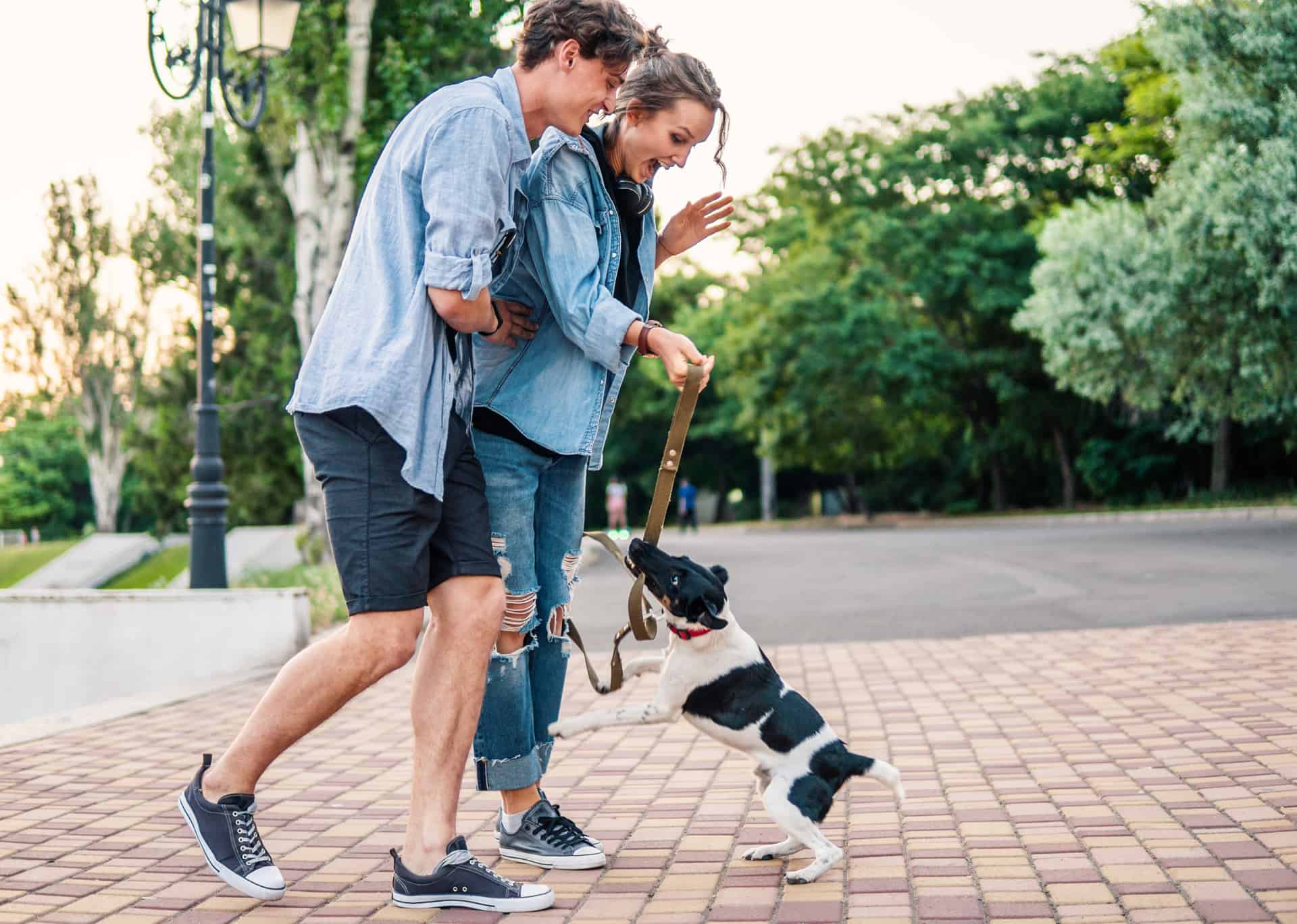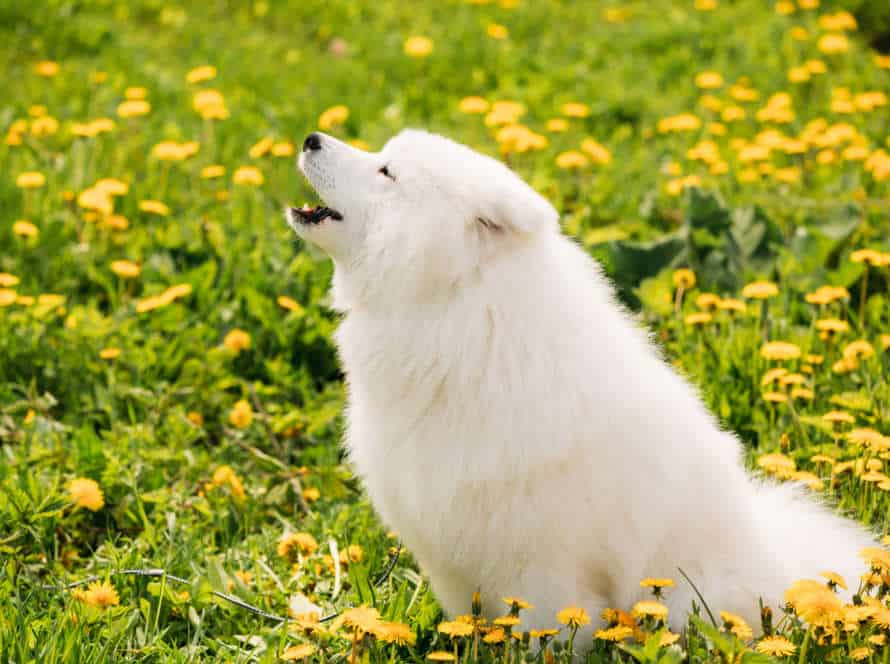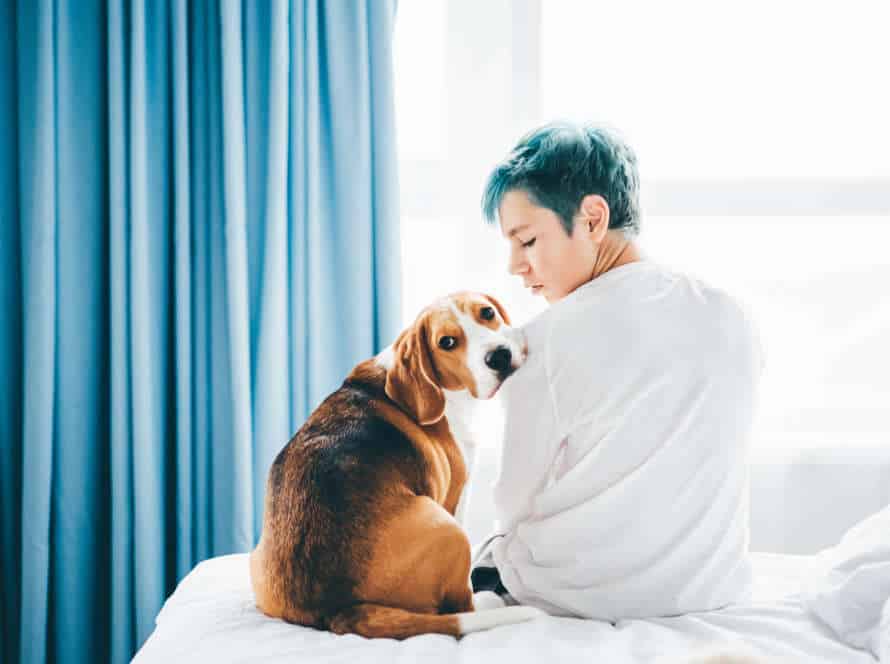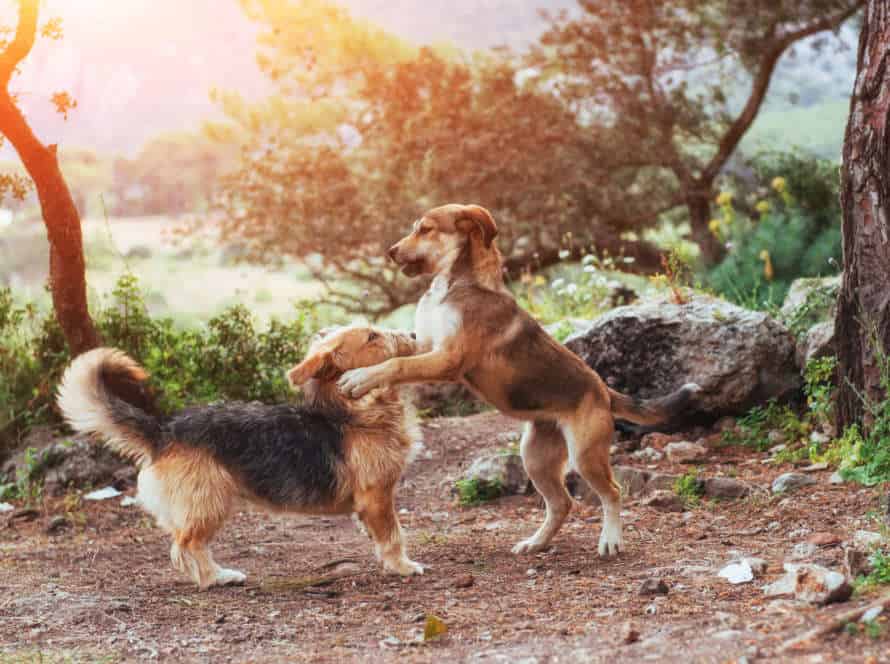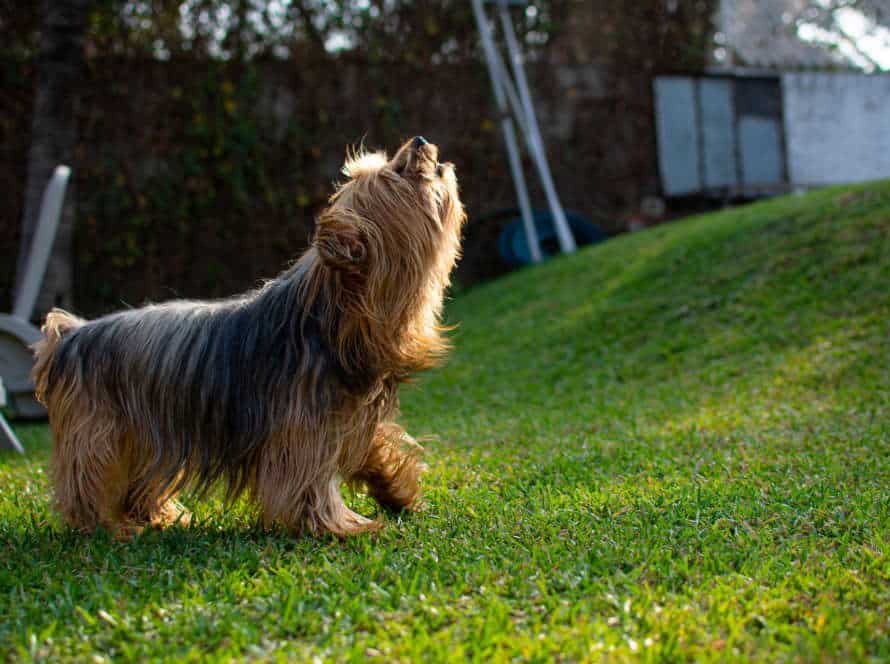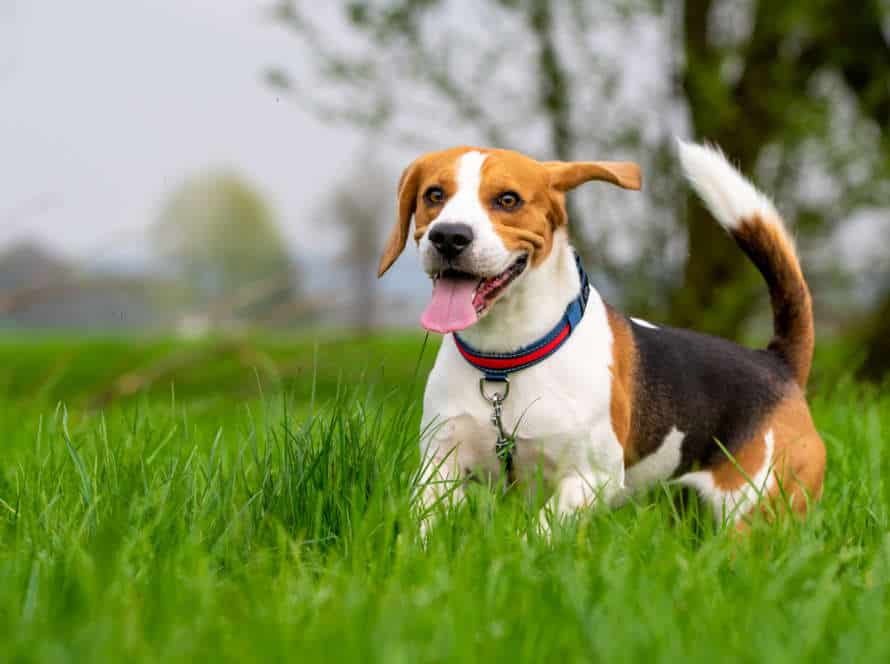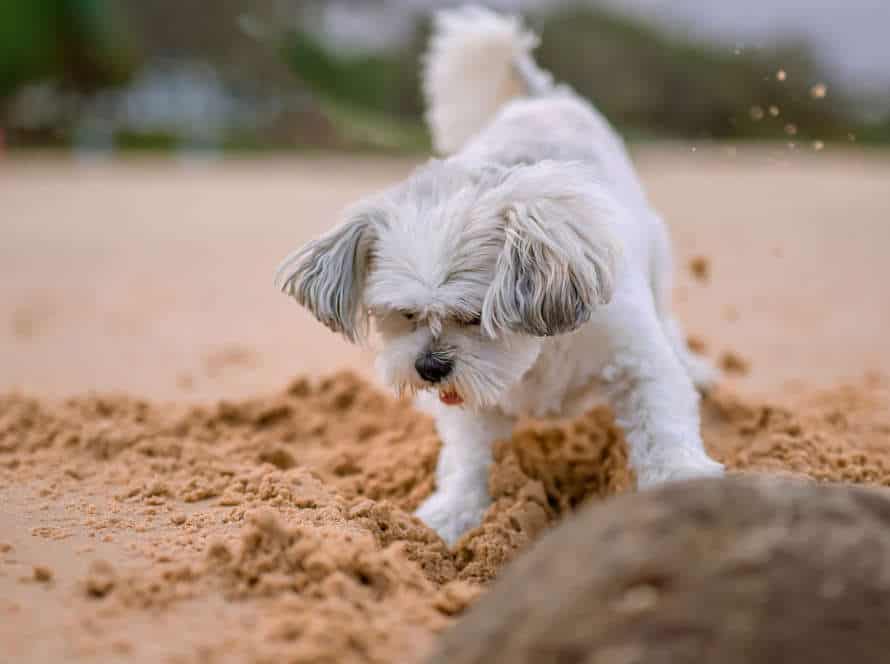Puppy Play: When Does Roughhousing Go Too Far?
Puppies’ roughhousing is natural and can help them build social skills and bond with their owners. However, if it gets too aggressive or dangerous, it’s important to recognize it.
Some signs that indicate it’s gone too far:
- Growling and biting become more frequent and intense
- One puppy is scared, or tries to escape
- One puppy dominates the play
- Puppies start causing damage, or getting hurt
If you see these signs, it’s time to interrupt the play and redirect the puppies’ attention to something less intense. You could also enroll your puppies in a puppy socialization class, or get advice from a professional dog trainer.
Pro tip: Always supervise puppy playtime, set limits and intervene when needed, to keep roughhousing under control.
The Importance of Puppy Play
Puppies love to play! It’s essential for their development. Through play, they learn how to navigate the world, build social skills and even work on communication. Plus, it helps them build confidence and resilience, as well as get exercise. But when roughhousing gets too much, it can be hard to tell. Let’s take a closer look!
Benefits of play for puppies
Playing is a must for puppers! It gives lots of benefits. Here are some of them:
- Physical exercise: Playtime helps your pup build strong muscles, bones, and joints.
- Mental stimulation: Through play they learn new stuff, try new things, and use their senses more.
- Socialization: Playing with other puppers or humans helps them understand social cues, talk better, and make friends.
- Family Bonding: Playing with you strengthens your bond.
Roughhousing can be good, but watch out they don’t get too aggressive. Step in if they start misbehaving.
How play helps with socialization and training
Playtime is super important for puppies’ socialization and training. It helps them develop social skills and stay physically and mentally healthy. Here’s how it helps:
- Bonding: Playtime strengthens the bond between puppy and owner.
- Socialization: Through play, puppies learn how to interact with other dogs and humans.
- Exercise: Playtime helps burn off energy and keeps pups physically fit, preventing destructive behavior.
- Positive Reinforcement: By using positive reinforcement during play, puppies learn desirable behaviors.
But when does roughhousing go too far? Supervising adults should always be present during puppy playtime to monitor for any aggressive behavior and keep them safe.
Pro Tip: Mix up toys during playtime to stimulate their senses and let them explore different textures and tastes.
The role of humans in puppy play
Our mission as humans is to create a secure area for our furry buddies to play. And, set clear rules to stop roughhousing from getting out of hand. Here are some tips:
- Keep an eye: watch your pup during play and step in when necessary.
- Playthings: give your puppy access to toys meant for playtime.
- Boundaries: teach your pup not to bite too hard or jump on people.
- Reward: applaud your puppy for playing nicely and following the rules.
It’s essential to monitor puppy playtime carefully. To make sure things don’t get too intense, resulting in harm or hostile behavior. By establishing boundaries and a safe atmosphere, you can help your puppy learn to play well with others. Pro tip: When your pup plays too rough, don’t use physical punishment. Instead, redirect their attention to a toy or teach them a calm behavior like sitting.
Signs That Play is Becoming Aggressive
Puppy play is natural! It helps pups with socialization. They learn body language and how to interact with other dogs and humans. But when it goes too far, there are signs. Let’s learn what these are!
Signs that it’s time to stop:
- Play becoming too rough?
- Aggressive behavior?
Growling, biting, and nipping
Growling, biting, and nipping may signal that puppy play is turning aggressive. This can be harmful to humans and animals. Signs of too rough play include:
- Growling or snarling for a long time
- Biting that leaves marks
- Going for sensitive areas like face, neck, or limbs
- Not letting go of a toy or person
- Ignoring commands to stop
As a puppy owner, it’s important to watch out during playtime. Intervene when needed. Redirect attention, give appropriate toys, and set boundaries to stop aggressive play.
Refusal to stop or respond to commands
If your pup isn’t responding to commands or stops obeying during playtime, it could mean they’re getting aggressive. Even though pups can be energetic and playful, it’s a good idea to keep an eye on their behavior so it doesn’t worsen.
Here are some signs to look out for:
- Growling or snapping, even during calm play
- Biting too harshly or too often
- Excessively mounting or humping
- Snarling or baring teeth
If you spot these signs, take action to calm your pup. Teaching them basic commands, like “sit” and “stay”, will help them to understand boundaries. Don’t forget to constantly supervise pup playtime, and intervene quickly if they get aggressive.
Pinning or holding other puppies down
Pinning or holding down another pup is a sign that playtime is becoming too aggressive. Though it’s natural for puppies to roughhouse, it’s essential to recognize when it turns into dominance or aggression. Pinning or holding can be a precursor to biting, so it’s important to intervene when this behavior is seen.
Other signs of aggression during playtime include snapping, growling, and tense body language. If playtime is becoming too much, calmly separate the puppies and redirect their attention. Aggression during play can lead to injury and future behavior problems.
To prevent aggression, provide lots of toys and safe spaces for puppies to play in. Supervise their play and reward positive behavior like taking turns and sharing toys. Remember: Early intervention is key to preventing aggressive behavior in puppies.
Training Tips for Appropriate Puppy Play
Puppy playtime is essential! It helps with training and building a strong bond between pup and owner. But, it’s also vital to know when it’s too much. Teach your pup clear limits around play to ensure they get the right amount of physical and mental stimulation.
Here are some tips on how to do that:
- Set boundaries around when playtime starts and ends by establishing a consistent routine.
- Use toys during playtime to promote positive chewing practices and divert unwanted biting behaviors.
- Be aware of your pup’s limits and energy levels. Take breaks and avoid over-stimulating or overwhelming your pup.
- Start obedience training to introduce commands such as “stop,” “drop it,” and “leave it” that will come in handy during playtime.
- Remember to always provide positive reinforcement during playtime and training to continue building a strong bond with your pup.
Teaching “drop it” and other commands
Teaching your puppy “drop it” is vital. It encourages good play and manages their behavior. Here are some tips:
- Offer your pup a toy or treat.
- When they start playing, give another one and say “drop it”.
- Once they drop the first, praise them and give them the other.
- Do this again, gradually increasing the time between giving them the toy/treat and saying “drop it”.
- Once they have mastered it, move on to other commands like “sit”, “stay” and “come”.
- These will help manage their behavior during playtime and keep them safe.
Always supervise play and stop if it gets rough or aggressive.
Setting boundaries and limits
Setting boundaries and limits is key when training your puppy. Here are some tips for puppy playtime:
- Reward good behavior and discourage the bad.
- Teach your pup a release word, like “enough,” to show the end of playtime.
- Observe their body language and behavior for signs of aggression, like growling or biting.
- Set up safe play areas, like a fenced yard or playpen, to keep them safe.
- Limit playtime to short periods and give regular breaks. That way, they won’t get overstimulated or exhausted.
By setting boundaries, monitoring behavior, and creating a safe environment, your pup will learn appropriate play and stay healthy!
Encouraging appropriate behavior and redirection
Training puppies for the right playtime is essential – and encouraging good behavior and redirection is key. Here are some tips to keep in mind:
- Speak the same words every time: Utilize the same phrases like “Stop,” “No biting,” and “Be gentle” to help reinforce training.
- Reward good behavior: Praise and give treats to your puppy when they act suitably, such as with soft mouthing instead of rough biting.
- Redirect their attention: If your pup gets too aggressive, distract them with a toy or snack, and then praise them for their play. This teaches them what’s acceptable and strengthens it.
- Finish playtime on a positive note: Stop playing when your pup is still being good, so they connect positive behavior with ending playtime.
Pro tip – Puppies have short attention spans and may need more frequent breaks during playtime. Make sure to meet your pup’s physical and emotional needs in other ways, too!
When to Intervene in Puppy Play
Puppy playtime is essential for a pup’s growth. Usually, puppies will play alone, but you may have to step in. Playing too hard can be risky, so if you’re not sure when to intervene, watch their behavior.
Here’s when you should intervene in puppy play:
Recognizing when play has turned aggressive
It’s key for puppy parents to know the difference between playful behavior and aggression. Here’s what to look out for:
- Growling: Monitor it during playtime as it can lead to aggression.
- Biting: Nipping and mouthing during play is okay, but intense biting is not.
- Body Language: Watch for intense stares, stiff body posture, or raised hackles. This means playtime is turning aggressive.
- Control the situation, stop the barking, biting, or growling. Redirect your pup’s energy into a playful activity.
- Pro Tip: Train your puppy with basic obedience and positive reinforcement. This can help control impulses and redirect behavior.
How to safely separate puppies
It’s important to separate puppies during playtime for their safety and proper socialization. But, when and how to intervene must be understood. Here are some tips:
- Watch out for signals of distress, like growling, yelping, or biting.
- Encourage positive behavior like bowing or gentle mouthing with treats or compliments.
- Use a loud noise, such as clapping or banging a toy, to stop rough play.
- If play is too intense, separate the puppies and give them a break before they go back to playing.
Proper socialization is essential to puppies’ growth, so it’s important to intervene the right way to avoid negative experiences.
Addressing and redirecting problem behavior
Puppy owners must know when to intervene in playtime. Roughhousing is normal for pups, but it can go too far. Here are warning signs to look for:
- If one puppy dominates the other
- If one bites too hard or aggressively
- If one is excessively vocal or aggressive
To redirect the pups, separate them for a few minutes. Alternatively, distract them with a toy or treat. Also, show them how to play gently by modelling appropriate behavior. With practice, your puppies can learn to play safely and happily.
Preventing Puppy Aggression
Puppies can be aggressive if their playing gets too wild. Socialization and training early on are important to stop puppy aggression. Recognize signs of aggression and take steps to stop it. Here’s the info:
The role of early socialization
Early socialization is essential for avoiding puppy aggression and encouraging healthy play. Puppies that are not exposed to different people, animals, and situations at a young age may not be able to handle stress or interact with others properly. Roughhousing and play biting which aren’t addressed can become aggressive.
Here’s what you can do to socialize your puppy and promote positive play habits:
- Introduce your pup to various people, animals, and environments and monitor their behavior.
- Reward your pup for good conduct and give positive reinforcements.
- Use diverting tactics like offering toys or treats to discourage biting or aggression.
- Observe signs of distress or extreme aggression such as growling or snarling and act accordingly.
- Motivate play activities that support healthy socialization and communication.
Keep in mind, early socialization is the key to preventing puppy aggression, creating a good bond with your pet and ensuring a happy future together.
The importance of puppy obedience training
Puppy obedience training is a must for all dog owners. It helps stop puppy aggression, and keeps the puppy and the owner safe. Teach them basic commands like sit, stay, heel, and come. This teaches them to act properly and socialize with other dogs and people. Training can also keep puppies from getting aggressive as they grow up.
Roughhousing is something puppy owners need to watch for. Play is good for their growth, but it’s the owner’s job to make sure it’s safe. Obedience classes can help owners have a well-behaved, socialized, and happy pet.
Consistency is key. Repeat commands daily. Reward them with praise and treats when they behave.
Encouraging positive interactions with other dogs
Encourage positive interaction with other doggies! This is key to prevent puppy aggression and make a safe, friendly environment for all. Here are some tips:
- Socialize pup early. Take them to classes, events where they can meet other dogs in a structured, safe space.
- Watch pup & other dog interactions closely. Intervene if either show aggression or are uncomfortable.
- Reward good behaviour! Treats & praise for when pup interacts calmly & positively with others.
- No rough play! This can quickly turn aggressive so discourage it.
- Leash pup when out in public. Keep them under control while letting them interact with other pups.
By following these tips, you can stop puppy aggression and ensure your dog has positive interactions.
Note: Please note that this is just an outline for the article. The actual content may include more sections or subsections or may omit some of the given sections. It’s important to tailor the outline to the specific needs of the article’s search intent.
Warning! This heading isn’t a real part of the article. It’s a reminder that the outline for the Puppy Play article can be changed to meet the reader’s needs. Content may include extra sections or leave out some listed in the outline. So, it’s important to tailor the outline to answer the question: “When does puppy play go too far?“
Frequently Asked Questions
Q: My puppy loves to play rough with me. How can I tell when it’s gone too far?
A: Watch for signs that your pup is becoming overly aggressive, like growling or biting too hard. If you feel uncomfortable or if your puppy is not responding to your efforts to calm them down, it might be time to stop the play session.
Q: Is it okay for puppies to play fight with each other?
A: Yes, it can be a normal and healthy part of their development as long as it remains playful and both parties are enjoying themselves. However, it’s important to intervene if things start to escalate, and to supervise playtime at all times.
Q: My puppy seems to get too excited during playtime and it’s hard to get them to calm down. What can I do?
A: You can try taking breaks during playtime so that your puppy has a chance to calm down before they get too worked up. You can also redirect their energy to other activities, such as puzzle toys or training exercises to help them focus.
Q: Can roughhousing during playtime lead to aggression in my puppy?
A: It’s possible. Puppies who play too roughly and don’t learn appropriate bite inhibition and other boundaries can grow up to be more aggressive dogs. That’s why it’s important to set clear limits during playtime and to stop the session if things get too intense.
Q: What are some other activities I can do with my puppy besides roughplay?
A: There are many fun activities you can try with your pup, such as going for walks, teaching them new tricks and commands, and playing with interactive toys or balls. You can also take your puppy to obedience classes or enroll them in dog sports like agility or flyball.
Q: My puppy is starting to bite me during playtime. What should I do?
A: It’s important to teach your puppy appropriate bite inhibition so that they learn how to play without causing injury. You can start by redirecting your pup’s attention to a chew toy, and by gently discouraging them from biting too hard. If the biting persists, you may want to seek professional help in training your pup.

